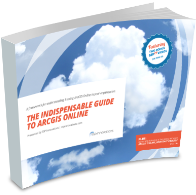To this day, I guarantee that my father’s VCR is blinking 12:00. His truck clock since his last battery replacement is also blinking 12:00.
He doesn’t text or use cruise control, uses a monkey wrench to turn on the shower, and still does his taxes by hand.
I had always looked up to my father when it was tax time. He would bring out the temporary desk (cement blocks and a door), and put it in the living room in front of the wood burning stove.
Paper would be flying everywhere (probably some in the fire). After a few days, it would done.
Like I said…I had always looked up to my father when it was tax time. That was until last weekend.
I spent 1.5 days trying to figure out my family’s taxes which included reading the directions and putting values into a “modern” spreadsheet.
This year was different. I now have a kid in college for the first time. I had my college kid’s cashed US Treasury Bonds to figure out.
There was a lot of new “stuff.” There came a point that I said, “Forget it.” I jumped in my truck at 1:32 pm (according to my accurate truck clock) to drive to Office Depot to buy the tax software CD.
It then hit me, “What am I doing?” Everything is online. Turned around, and drove home. Logged into a popular tax software website, created an account, and knocked out my taxes in less than two hours.
I even found that I overpaid in a certain area that I know that I never would have found otherwise. I called my father, and said that I will never do my taxes by hand again. I think it broke his heart.
My technology-deficient father did do one thing that I will always appreciate. When I was young, he bought me a Radio Shack TRS-80 Model 4 computer with an internal disk drive. Buddy, I was stylin’.
In the early 80’s, I use to get in trouble in school A LOT. Not because I was a bad kid, but because I was bored. When Clark-Moores Middle School students got in trouble, we would have to write the sentence:
“As a good school citizen, it is my duty and responsibility to obey all school rules.” It has been 30 or so years since I have thought of that (let alone written or typed that line). In fact, I am laughing as I type.
I would have to write this sentence about 500 or so times. I used to stack pencils on top of each other so I could write three lines at a time. I then got smart. I asked the teacher if I could type it. The teachers didn’t have a problem with this.
This is when I did my first programming. I wrote a loop with a counter and could crank out the 500 lines in a few minutes on my daisy wheel Radio Shack printer.
The teachers started catching on when the type would go over the perforated edge. They would ask “How did you do that?” They didn’t buy my answer of “I am just good.”
This blog post, is not about my father. I could go days writing some of the craziest stories about that man that would bring one to tears.
So…..What is my point? To conduct a solid GIS delivery, the person running the show (and ultimately responsible for the success of the project) MUST motivate the often “non-sold” and sometimes anti-technology end user.
Yes…. Funding/approval for the project comes from the head cheese, but specific infrastructure knowledge typically comes from the end user (i.e., those that work with it every day).
In a previous post is mentioned Sisyphus’s rules. One of his rules was to have a client champion that will own the GIS. Ownership that doesn’t end when the project is over, but also afterward. It is optimal to have that seasoned veteran employee be that champion, or at least a strong partner in the system’s development/maintenance.
So…. How does one handle the potential statement from a seasoned veteran, “This is the way that we have always done it,” or “we don’t need this ‘stuff’”. Simple….LISTEN, LISTEN, and then LISTEN some more.
If I am standing in front of a group “Chin Wagging” all day, how am I going to learn about the specific nature of the system I am implementing? I like to listen to clients describe their system/processes, and build a GIS product that matches their processes as close as possible.
Not a single system works 100% of the time with just an “Out of the Box” deployment. Of course, one can start with the standard model, but ultimately it is tweaked to meet the daily demands/requirements placed upon it.
Listening also illustrates that I am not just trying to drive a new product down their throat. The funny thing is that often my biggest critics in beginning, often turn out to be that champion.
One of my most frequently occurring nightmares centers around teaching CADD folks. The dream entails a CADD guy that says, “I want my future GIS to exactly resemble my previous environment.”
OR “It takes way too long to put all that stuff in, and it doesn’t do what I want when I get it in there!” Seriously, I will wake up sweating from this bad dream.
I actually surprise people by saying that GIS is not CADD, and never will be. If all the user wants is a quick map using all their past efforts, I suggest they stay with CADD.
If they want a future analytical tool that combines both spatial (i.e., maps) and non-spatial data (i.e., spreadsheets, databases), there is no substitute for GIS.
But again, I try to LISTEN to them describe their legacy methodology and match them (as best I can). In the process, educating them as to the multitude of benefits that GIS offers.
To conclude, change is inevitable when the benefits outweigh the costs. Although I will forever respect my father’s ability to generate a lot of paper in his manual tax calculations, I will never manually do my taxes again. Funny thing is that my kids will probably one day laugh at how I do taxes when they find a “better way”. Question is whether this future, seasoned tax preparer will have the open mind to LISTEN.


David Azbill says:
Nice entry Brian – and good advice about LISTENING. I also remember writing that sentence, sometimes for the same offense as you!
It also must be true about your Dad’s VCR, and it absolutely does not surprise me that he still uses a VCR, and probably still calls you when trying to program it.
Thanks for sharing the post and for the nice laugh I’m having now.
Cheers my friend!
Dave
Brian Higgins says:
Thanks, Dave, for your comments and being a good friend both past and present.